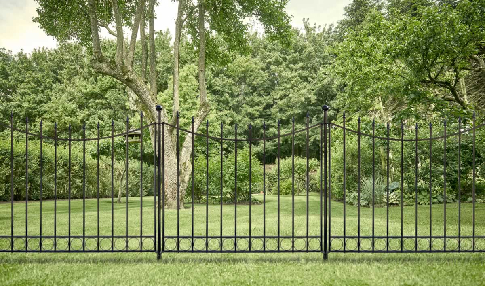Durable Plastic Chicken Netting for Effective Poultry Protection and Enclosure Solutions
Dez . 09, 2024 17:36
The Versatility of Plastic Chicken Netting An Essential Tool for Poultry Keepers
In recent years, the popularity of backyard farming has surged, leading to a higher interest in raising poultry among urban and suburban dwellers. Chickens are valued for their fresh eggs, meat, and even as pest controllers in gardens. However, with the joys of chicken keeping come challenges, particularly in ensuring their safety and well-being. One essential tool that every poultry keeper should consider is plastic chicken netting.
What is Plastic Chicken Netting?
Plastic chicken netting, often made from high-density polyethylene (HDPE) or polypropylene, is a durable and lightweight fencing solution tailored for poultry management. Unlike traditional wire fencing, plastic netting is flexible, easy to install, and often more affordable. It typically comes in rolls, varying in height and length, making it adaptable to different garden layouts or poultry housing setups. This versatility is one of its major selling points, allowing users to easily enclose pens, create temporary barriers, or protect specific areas in their backyards.
Benefits of Using Plastic Chicken Netting
1. Safety and Security One of the primary concerns for any chicken keeper is the safety of their flock. Plastic chicken netting offers a reliable barrier against predators such as raccoons, coyotes, and birds of prey. While no fencing can guarantee absolute protection, plastic netting significantly reduces the risk of animal attacks. Furthermore, the smooth texture of the netting helps to prevent young chicks from getting stuck or injured.
2. Affordability Compared to traditional fencing solutions, plastic chicken netting is often more budget-friendly. This cost-effectiveness makes it an attractive option for new poultry enthusiasts who may be hesitant to invest heavily in start-up costs. The money saved can be utilized for other essential supplies, such as feed, housing materials, or health care for the flock.
3. Ease of Installation One of the notable advantages of plastic chicken netting is its lightweight nature. This quality makes it exceptionally easy to handle, allowing even novice chicken keepers to put up their fencing without requiring specialized tools or expertise. Most people find they can quickly set up a protective enclosure within a few hours, leading to instant peace of mind.
plastic chicken netting

4. Flexibility The adaptability of plastic netting is another compelling reason for its use. It can be easily cut to size or shape, accommodating unique garden layouts or specific needs. This feature is especially useful for temporary enclosures, allowing users to shift barriers as needed for rotational grazing or seasonal crops.
5. Weather Resistance Plastic chicken netting is designed to withstand various weather conditions. Unlike metal fencing, it does not rust or corrode, ensuring longevity against the elements. This resilience means that chicken keepers can invest in fencing that will last for many years to come, despite exposure to rain, sun, and snow.
Considerations for Use
While plastic chicken netting has many advantages, it’s essential to be aware of certain considerations. Although it's a sturdy option, it may not be as robust as metal fencing and could be susceptible to damage from larger or more determined predators. A thorough examination of the area where the netting will be employed is vital; surrounding the base with rocks or burying it slightly underground can deter digging animals.
Furthermore, chicken owners must ensure that the netting is adequately tensioned and secured to prevent sagging or accidental breaches. Regular maintenance checks will help identify any wear or weaknesses, preserving the safety of the flock.
Conclusion
Plastic chicken netting serves as an invaluable tool for both novice and experienced poultry keepers. Its combination of safety, cost-efficiency, ease of installation, and flexibility makes it a preferred choice for protecting chickens in various settings. As the trend of backyard poultry farming continues to grow, the use of practical solutions like plastic netting will be crucial in fostering healthy, happy, and secure flocks. Embracing such innovations not only enhances the experience of raising chickens but also supports sustainable practices in food production.




















